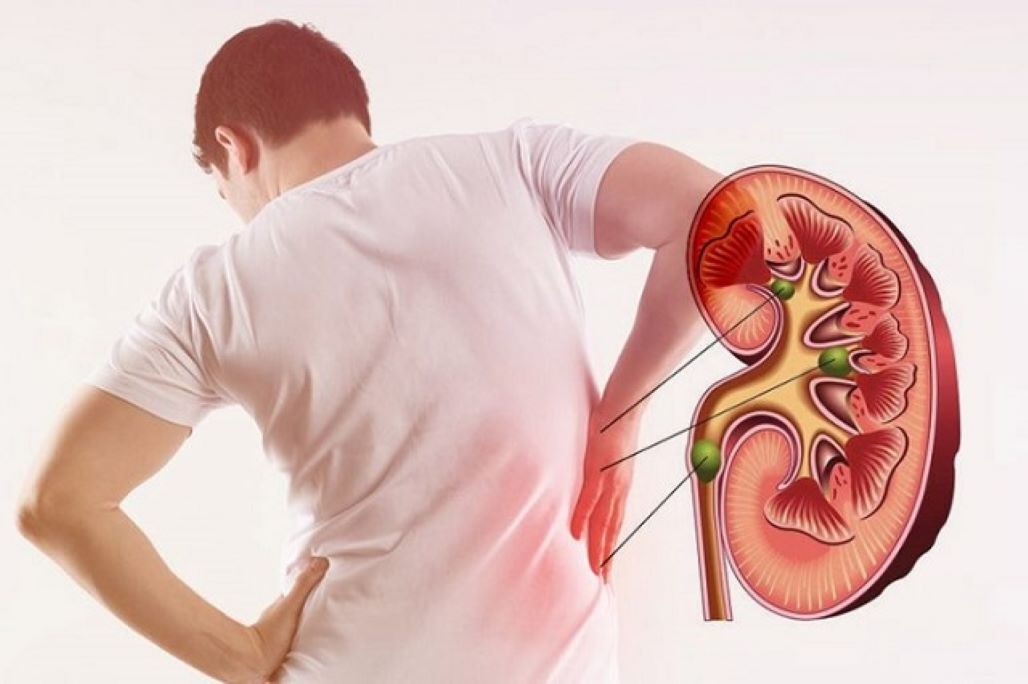Kidney stones are solid, crystal-like masses formed by minerals and salts in the kidneys. Known medically as “renal calculi,” they affect millions of people globally and are especially prevalent in individuals with specific dietary habits, dehydration issues, or genetic predispositions. While kidney stones are often manageable, they can cause severe discomfort and, in some cases, lead to complications. Understanding what causes kidney stones, their symptoms, and how to prevent or treat them can make a significant difference for those at risk or suffering from these painful deposits.
What Are Kidney Stones and How Do They Form?
Kidney stones form when certain substances in the urine, such as calcium, oxalate, uric acid, or cystine, reach high concentrations. Under normal conditions, these substances dissolve in the urine and exit the body without issue. However, when there’s an imbalance — often due to dehydration, diet, or metabolic issues — these minerals begin to crystallize and form stones within the kidney.
The four main types of kidney stones are:
- Calcium Stones: The most common type, often made of calcium oxalate or calcium phosphate.
- Uric Acid Stones: Common in people who eat high-protein diets or suffer from conditions like gout.
- Struvite Stones: Typically associated with urinary tract infections (UTIs).
- Cystine Stones: The rarest type, forming in individuals with the genetic disorder cystinuria.
Symptoms of Kidney Stones
Kidney stones may go undetected if they are small enough to pass without causing symptoms. However, when a stone becomes lodged in the urinary tract, it can cause intense pain and a range of symptoms, including:
- Severe pain in the back, side, or lower abdomen, often radiating to the groin.
- Blood in the urine (hematuria), which may appear pink, red, or brown.
- Frequent urge to urinate or experiencing pain during urination.
- Nausea and vomiting due to the body’s response to pain.
- Fever and chills if there’s an associated infection.
The pain from kidney stones is known as “renal colic” and is often described as one of the most intense pains a person can experience. If you suspect kidney stones, seeking medical advice is essential, as they can cause complications if left untreated.
Causes and Risk Factors
While anyone can develop kidney stones, certain factors increase the likelihood. These include:
- Dehydration: Low fluid intake results in concentrated urine, increasing the likelihood of mineral crystallization.
- High sodium intake: Excessive salt raises calcium levels in urine, promoting stone formation.
- Diet high in oxalate-rich foods: Foods like spinach, chocolate, and nuts are high in oxalates, which can contribute to calcium oxalate stones.
- High-protein diets: Animal proteins increase uric acid levels in the body, leading to uric acid stones.
- Family history: A family history of kidney stones may predispose individuals to develop them.
- Medical conditions: Conditions like obesity, gout, recurrent UTIs, and certain digestive diseases can increase the risk.
Diagnosis of Kidney Stones
If you’re experiencing symptoms of kidney stones, your doctor will perform various tests to confirm their presence, assess their size and location, and determine the best course of action. Common diagnostic tests include:
- Urine tests to check for high levels of stone-forming minerals.
- Blood tests to detect excess minerals that contribute to stone formation.
- Imaging tests like CT scans or ultrasounds, which allow doctors to locate stones and measure their size.
- Stone analysis, where passed stones are collected and analyzed to determine their type and guide further prevention strategies.
Treatment Options for Kidney Stones
Treatment for kidney stones depends on their size, type, and the level of discomfort they cause. Here are common treatment approaches:
- Hydration and Medication:
- Small stones can often pass naturally through increased fluid intake, helping flush the stone out of the urinary tract.
- Pain relief: Over-the-counter pain relievers like ibuprofen or acetaminophen can alleviate pain.
- Alpha-blockers: These medications relax the muscles in the ureter, making it easier for stones to pass.
- Medical Procedures:
- Shock Wave Lithotripsy (SWL): This non-invasive procedure uses sound waves to break large stones into smaller pieces, making them easier to pass.
- Ureteroscopy: A thin tube is inserted through the urethra to retrieve or break down the stone.
- Percutaneous Nephrolithotomy (PCNL): For very large stones, a small incision is made in the back to remove stones directly from the kidney.
- Surgical Removal:
- Open Surgery is rarely necessary but may be performed if other methods are ineffective. It involves removing the stone directly through a surgical incision.
Preventing Kidney Stones
Preventing kidney stones involves managing lifestyle factors that contribute to stone formation. Here are some practical prevention strategies:
- Stay Hydrated: Drinking plenty of water (2-3 liters daily) helps dilute the urine, reducing the risk of stone formation. Lemon water is often recommended because the citrate in lemons may help prevent stones.
- Limit Sodium Intake: Too much salt can raise calcium levels in urine, increasing the likelihood of stones. Avoid processed foods, canned soups, and salty snacks.
- Monitor Oxalate-rich Foods: Limiting foods like spinach, chocolate, and certain nuts can help reduce oxalate levels, especially if you have a history of calcium oxalate stones.
- Consume Enough Dietary Calcium: Contrary to what you might think, dietary calcium binds with oxalate in the intestines, preventing it from reaching the kidneys. Try to get your calcium from foods like milk, cheese, and yogurt rather than supplements.
- Balance Protein Intake: High-protein diets can increase the risk of uric acid stones, so try to balance your protein intake with other nutrients.
- Consult with a Dietitian: For those with recurring stones, a dietitian can create a meal plan to reduce your stone risk based on your specific needs.
When to See a Doctor
Kidney stones are a common health issue, and while smaller stones may pass naturally, larger stones often require medical intervention. If you experience severe pain, blood in your urine, or recurrent kidney stones, consult a healthcare provider. They can guide you through treatment options and create a prevention plan tailored to your needs.
Living with Kidney Stones
If you have a history of kidney stones, adopting preventive strategies is essential. Besides diet and hydration, keeping up with regular check-ups can help identify and manage stone-forming tendencies early on. Many people find success in adopting these lifestyle changes, allowing them to manage and even prevent future stone episodes.
Conclusion
Kidney stones are painful but manageable with the right approach. Understanding the causes, symptoms, and treatments for kidney stones can empower you to take control of your health. With proper hydration, dietary adjustments, and preventive measures, the risk of kidney stones can be significantly reduced. By staying informed and consulting with healthcare professionals, you can prevent kidney stones from impacting your quality of life. If you experience any symptoms, don’t hesitate to seek medical advice to relieve your discomfort and protect your kidney health.
For Consultation Contact us on 8390861787
Website – www.chetnahospital.co.in
Address – Chetna Hospital, Sambhajinagar, MIDC, G Block, Near Rotary Club, Chinchwad 411019
.
.
.
#pune#pcmc#chinchwad#hospital#medical#medicalservices#health#healthcare#surgery#generalsurgery#medicalprocedure#generalsurgeon#generalsurgeoninchinchwad













